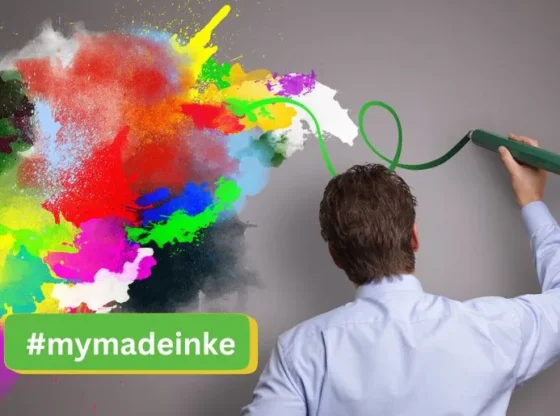Origins of #mymadeinke
The #mymadeinke movement began as a grassroots initiative aimed at boosting local industries and encouraging Kenyans to support homegrown products. The campaign gained momentum on social media platforms like Twitter, Instagram, and Facebook, where users began sharing their experiences with locally made goods, using the hashtag to unify their posts.
The motivation behind this movement can be traced back to a combination of factors:
- Economic Resilience: A desire to bolster the Kenyan economy by reducing dependency on imported goods and supporting local businesses.
- National Pride: A growing sense of national pride and a push to showcase the quality and diversity of Kenyan products.
- Sustainability: An increasing awareness of the environmental impact of importing goods, leading consumers to seek out more sustainable, locally sourced options.
Impact on Local Businesses
The #mymadeinke movement has had a significant impact on local businesses across various sectors, including fashion, agriculture, crafts, and technology. By rallying consumer support, the movement has helped small and medium-sized enterprises (SMEs) gain visibility and increase their market share.
Boosting Sales and Visibility:
Many local businesses have reported increased sales and greater online visibility as a result of the hashtag. Social media has become a powerful tool for marketing and connecting with consumers.
Encouraging Innovation:
The movement has spurred innovation, with businesses striving to meet the growing demand for high-quality, locally made products. This has led to improvements in product design, packaging, and overall quality.
Job Creation:
By supporting local industries, #mymadeinke has contributed to job creation and economic growth, providing employment opportunities and fostering entrepreneurship.
Also Read: Maximize Cache Shop Performance Through Intelligent Replacement Strategies
Challenges and Complexities
Despite its successes, the #mymadeinke movement faces several challenges:
Competition with Imports:
Imported goods often flood the market, sometimes at lower prices due to economies of scale. Competing with these products can be difficult for local businesses with limited resources.
Quality Perception:
While the movement promotes local products, there can be a perception that imported goods are of higher quality. Changing this mindset requires continuous efforts in quality improvement and marketing.
Supply Chain Issues:
Local producers may struggle with supply chain inefficiencies, including sourcing raw materials, manufacturing capabilities, and distribution networks.
Economic Policies:
Government policies play a crucial role in supporting or hindering local industries. Inconsistent policies or lack of support can pose significant barriers to the growth of locally made products.
Broader Implications for Kenyan Society
The #mymadeinke movement is more than just a marketing trend; it reflects broader societal changes and aspirations:
- Cultural Renaissance: By valuing locally made products, Kenyans are rediscovering and celebrating their cultural heritage. This movement has sparked a cultural renaissance, where traditional crafts and practices are being revived and modernized.
- Economic Empowerment: Supporting local businesses empowers communities economically, helping to reduce poverty and inequality. It also fosters a sense of ownership and pride among producers and consumers alike.
- Sustainability and Ethical Consumption: The movement encourages sustainable and ethical consumption practices. By choosing locally made products, consumers reduce their carbon footprint and support fair labor practices.
- Youth Engagement: The movement has particularly resonated with younger generations, who are more active on social media and more conscious of their consumption choices. This demographic is driving change and setting trends that could shape the future of Kenya’s economy.
Future of #mymadeinke
The future of #mymadeinke hinges on several factors:
- Continued Consumer Support: The movement’s success relies on sustained consumer interest and commitment to buying local.
- Government and Institutional Support: Policies that support local industries, such as tax incentives, grants, and infrastructure development, will be crucial.
- Business Adaptation and Innovation: Local businesses must continue to adapt, innovate, and improve their offerings to compete effectively in the market.
- Globalization Balance: Finding a balance between leveraging global trade opportunities and supporting local industries will be key to sustainable growth.
Conclusion
The enigma of #mymadeinke lies in its ability to unify and mobilize a nation around the simple yet powerful concept of supporting locally made products. While the movement faces challenges, its impact on Kenya’s economy, culture, and society is undeniable. By continuing to champion this cause, Kenyans can foster a more resilient, sustainable, and equitable future for their country.
Also Read: Estoppel real estate: Everything You Need To Know
FAQS
1. What is #mymadeinke?
#Mymadeinke is a social media movement promoting and celebrating locally made products in Kenya. The hashtag unifies posts about Kenyan goods and encourages support for local businesses.
2. Why was #mymadeinke created?
The movement was created to boost the Kenyan economy by reducing dependency on imported goods, fostering national pride, and promoting sustainable consumption.
3. How has #mymadeinke impacted local businesses?
It has increased sales and visibility for local businesses, spurred innovation, created jobs, and fostered entrepreneurship by connecting businesses with supportive consumers.
4. What are the challenges faced by the #mymadeinke movement?
Challenges include competition with cheaper imported goods, changing perceptions about the quality of local products, supply chain inefficiencies, and inconsistent government support.
5. How does #mymadeinke contribute to sustainability?
By encouraging the purchase of locally made products, the movement reduces the carbon footprint associated with importing goods and supports fair labor practices.
6. Why is #mymadeinke important for Kenyan culture?
It promotes a cultural renaissance by celebrating and reviving traditional crafts and practices, fostering a deeper appreciation for Kenya’s cultural heritage.
7. What role do young people play in #mymadeinke?
Younger generations, active on social media and conscious of their consumption choices, are driving the movement and setting trends that shape the future of Kenya’s economy.
8. What kind of support does #mymadeinke need to thrive?
The movement needs sustained consumer interest, supportive government policies, continuous business innovation, and a balance between global trade and local industry support.
9. How can I participate in the #mymadeinke movement?
You can participate by purchasing locally made products, using the hashtag #mymadeinke on social media to share your experiences, and encouraging others to support local businesses.


